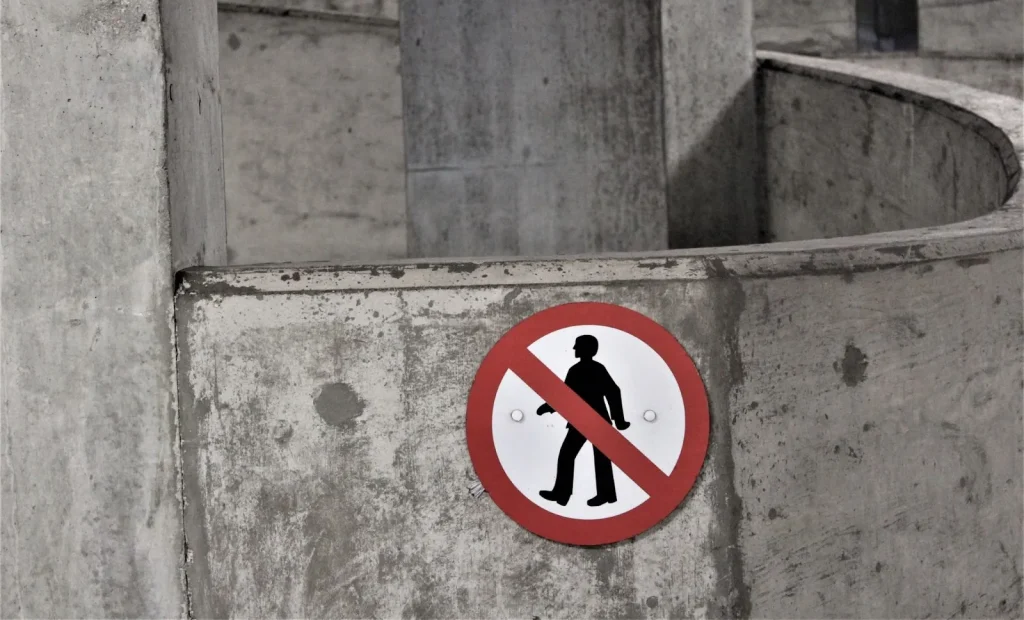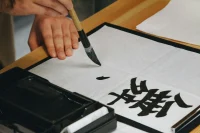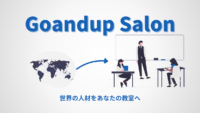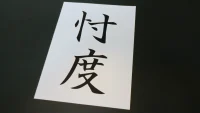What does "otsukaresama (お疲れ様)" mean in Business x Japanese? Paraphrases, example sentences, and notes

In the business world, there are many Japanese words that are used in different ways from their meanings in the dictionary. Among them, "otsukare-sama (otsukare-sama)" is a phrase that every businessperson has probably heard before. However, many foreigners are surprisingly unaware of its meaning and usage.
In this article, we will thoroughly explain how to read "お疲れ様", its meaning, specific examples of its use in business situations, and even paraphrases and how to say it in English. If you are unsure of how to use "お疲れ様" or want to know the correct meaning, please read this article to the end. It will surely be useful in business situations from tomorrow.
▼Goandup Picks Click here for recommended articles!
- Required before studying abroad! Goandup Nihongo+, an online Japanese language learning service
- This page introduces services for foreigners who wish to study in Japan or improve their Japanese language skills to learn Japanese online.
- Goandup Salon" community for foreigners living in Japan
- We introduce an online community where foreigners living in Japan can exchange information and interact with each other to support their life in Japan.
- Goandup Study" supports foreigners who want to study in Japan.
- This section introduces study abroad support services that provide comprehensive support to foreigners who wish to study in Japan, from preparation for study abroad to living in Japan.
- Where can I buy a prepaid SIM in Japan? Recommended SIM cards for foreigners are also introduced.
- How to purchase a prepaid SIM and suitable SIM cards for foreigners.
- The Complete Guide to Pocket Wi-Fi in Japan for Foreigners!
- We introduce how to select and recommend pocket Wi-Fi products that can be used conveniently in Japan.
- The Complete Guide to Finding a Job in Japan! Finding a job, changing jobs, and part-time work for foreigners
- This site provides foreigners who want to work in Japan with comprehensive information on how to find a job, recommended job sites, and other information necessary to find a job.
How to read "otsukaresama" and what it means when used in daily conversation

The reading of "otsukare-sama" is "thank you for your hard work."
In everyday conversation, it is often used to thank someone for their hard work after a long day of work or a difficult task. For example, "You worked hard all day today preparing materials. Thanks for your hard work! is a typical situation.
It can also be used to express support and appreciation for someone who is devoted to something, such as club activities or lessons. For example, "Thanks for another day of practice. I think your hard work is really great. For example, "I think your hard work is really great.
Thus, when we use "otsukasama" in everyday conversation, we are generally acknowledging the other person's hard work and expressing our appreciation for his/her labor.
◆If you want to learn more Japanese for business situations, we also recommend the following articles!
- What does [understand well] 「逆に」 mean? Thesaurus and example sentences.
- Explains the meaning of the business term "draft". Is it different from draft beer?
- What is the meaning and usage of the word "drop"? And example sentences in business situations.
- What does "zakkuri" mean and how is it used? Expressions in business situations are also introduced.
- What does "ass" mean as used in business conversation?
- What does "Tatakidate" mean in Business x Japanese? Explanation + Example Sentences
Meaning and example sentences of "otsukaresama" when used in business

In business situations, "Good work" is used in basically the same way, but it can have slightly different nuances depending on the situation.
Let's look at some specific examples.
Example sentence 1: "Good work," to a colleague passing by at work.
In this case, "Oita-sama" is used as an abbreviation of "Oita-sama desu" (thank you for your hard work), which is meant as a light greeting.
Example sentence 2: When leaving after a day's work, "Thank you all for your hard work."
Here, "Good job" is used as a term of endearment for a successful completion of a day's work. It may be used by a superior to a subordinate or between colleagues.
Example sentence 3: "Good job!" to a colleague who has finished a presentation at a meeting to a colleague after a presentation at a meeting
In this case, the words are intended to express a sense of "good job" in recognition of the preparation for the presentation and the nerves of the audience at the show.
Thus, in business situations, "Otsukasama" may have a stronger meaning as a greeting, or it may have a stronger meaning to express appreciation for the other party's hard work. It is important to choose the appropriate usage depending on the situation and the person you are addressing.
【 English expressions that are equivalent to 】 "otsukaresama" (thank you for your hard work) by usage
When expressing "Good job" in English, it is necessary to use it differently depending on the situation.
Let's look at English expressions for each example sentence.
【 Example Sentence 1】 To a colleague passing by at work, "Good job."
→directional marker or indicatorHi there." "How's it going?"
When using "Good evening" as a light greeting, everyday greetings such as "Hi there." or "How's it going?" are appropriate.
【 Example 2】 When leaving after a day's work, "Thank you all for your hard work."
→directional marker or indicatorGreat work today, everyone!" "Thanks for your hard work today.
When using "Good job" to a co-worker who has finished a day's work, it is appropriate to compliment them on their day's work, such as "Great work today, everyone!
【 Example 3】 "Good job!" to a colleague after a presentation at a conference.
→directional marker or indicatorGreat presentation!" "Well done on your presentation!"
When using "Good job" to a colleague who has finished a presentation at a conference, expressions that compliment the content of the presentation are appropriate, such as "Great presentation!
【 Example 4】 "Good day again."
→directional marker or indicatorI bet you're tired after such a long day."
If you are concerned about the other person's fatigue after a long day's work, expressions that are considerate of the other person's exhaustion are appropriate, such as "You must be exhausted after today.
Paraphrases and example sentences for "otsukaresama

Paraphrases and similes of "Good work" include the following
- I appreciate your efforts
- thank you for your hard work
- that's enough for today
- thank you
- the latter
If you are in a close relationship, you may say "otsukare", "otsukare", "otsu", or "otsu" for short. Let's rewrite the aforementioned example sentences using these paraphrased expressions.
- 【 Example Sentence 1】 "Good evening," to a colleague passing by at work. Good night."
- 【 Example 2】 When leaving after a day's work, "Thank you all for your hard work."
- 【 Example 3】 "Otsukare!" to a colleague who has finished a presentation at a conference Otsu!"
- 【 Example 4】 "Good day again." 【 example 4】 "Good day to you again today."
It can also be paraphrased as follows, depending on the situation
- 【 Example 1】 "Good morning", "Good afternoon", "Good evening" (hourly greetings)
- 【 Example 2】 "Thank you again for today." See you tomorrow."
- 【 Example 3】 "Your presentation was great!"
- 【 Example 4】 "You've had a hard day."
【 Note 】 Difference between "gokurousama" and "otsukaresama
Gohasama-sama" is a word to express gratitude for one's labor as well as "otsukasama" (thank you for your hard work), but it should be used with caution.
Gohasama-sama" is an expression used mainly by superiors to subordinates, for example, a superior to a subordinate. Therefore, it may be considered rude to say "Gohasama-sama" to a colleague or superior.
Therefore, it is safe to use "Good work" in the workplace. If you are worried about hierarchical relationships, we recommend you to choose "Otsukare-sama".
Notes on how to use "otsukaresama" with superiors and business partners

Good-bye" is an expression that can be used widely both inside and outside the company. However, it should be used with caution when addressing superiors or people outside the company, such as business partners.
Since "Good evening" is often used in a relatively close relationship, it may be considered rude to use it with a superior or a business partner.
Here are some specific examples to illustrate.
【 scene 1】 A business partner's representative passing by and calls out to him. →"Thanks for your hard work." (Add "is" to make it polite.)
【 Scene 2】 In an e-mail to the general manager of a business partner, "Good evening. My name is △△ of Fat Company." Write "Thank you very much. →I am always grateful for your support. I'm the manager of Fat Company. (In an e-mail outside the company, it is safer to say, "Thank you for your help.)
【 Scene 3】 To your own boss, "Good job!" and casually say to him. →"Good work, sir." (Add "was" to make it more polite.)
Thus, when using "okeyasama" to a superior or someone outside the company, the key is to express it politely using honorific expressions such as "okeyasama desu" and "okeyasama desu" (thank you for your hard work).
Also, use a more formal greeting such as "Thank you for your help" in your e-mail.
It is important to use appropriate language depending on the relationship with the other party and the situation.
Serious employment support to help you realize your dream of working in Japan!

Do you want to work in Japan?
Let us "Goandup" make that dream a reality!
【 Program Features 】
✅ JLPT N3 level Japanese language acquisition
✅ Thorough preparation for the specific skills test
✅ Full support for job hunting in Japan
Business-focused one-on-one lessons will help you find a job in Japan in the shortest possible time.
【 Program Menu 】
- Individual Japanese language lessons
- Intensive curriculum to obtain N3, especially specialized lessons for business Japanese that can be used at work.
- Intensive curriculum to obtain N3, especially specialized lessons for business Japanese that can be used at work.
- Preparation for the Specific Skills Test
- Customized materials for specific skill tests will be used to focus on frequently asked questions and learning to pass the test.
- Customized materials for specific skill tests will be used to focus on frequently asked questions and learning to pass the test.
- Resume and CV support
- To create resumes and CVs tailored to Japanese corporate culture, and to brush up on self-promotion and motivation for application.
- To create resumes and CVs tailored to Japanese corporate culture, and to brush up on self-promotion and motivation for application.
- Interview Preparation
- Guidance on areas for improvement through mock interviews and feedback based on corporate interview scenarios. Learn interview etiquette and behavior unique to Japan.
- Guidance on areas for improvement through mock interviews and feedback based on corporate interview scenarios. Learn interview etiquette and behavior unique to Japan.
- career consulting
- Provide introductions to companies that match the participant's career goals, select companies to apply to, and provide advice on the level of knowledge required by the companies to which the participant is applying.
- Provide introductions to companies that match the participant's career goals, select companies to apply to, and provide advice on the level of knowledge required by the companies to which the participant is applying.
- Chat Support
- In addition to one-on-one individual lessons, we also accept casual questions via DM (visa application, living support, assistance in finding a room, etc.).
If you are serious about your career in Japan, join us now!
▶︎ for more informationclick here.
We will do our best to support your success in Japan!
summary
In this article, we have explained in detail the meaning, usage, notes, paraphrases, and English expressions of the Japanese expression "Otsukasama", which is often used in business situations. Otsukasama" is basically a greeting to thank the other party for their hard work, but it can also be used as a lighthearted greeting in certain situations. In business situations, it is important to use polite expressions with honorifics when using it with superiors, superiors, and business partners. In e-mail, it is safe to use a more formal greeting, such as "Thank you for your help.
Although "Kudasama" has many subtle nuances, it is basically a word that expresses appreciation for hard work, in other words, it is a word that expresses consideration for the other person. We should proactively say "Oteyasama" to our close colleagues and others. Not only will you be able to thank them for their daily work, but you will also be able to build better relationships with them through such communication.
Your support will help us!
Thank you for visiting Goandup Picks. Our mission is to provide you with more useful information to show the world what Japan has to offer.
Your support will help us to further enhance our activities, so please support us!






